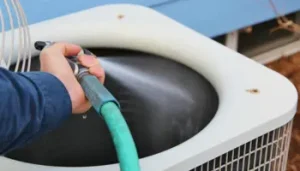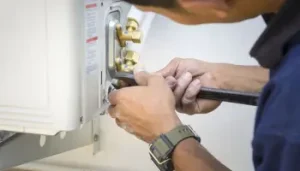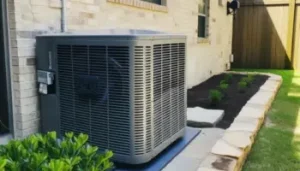In today’s fast-paced world, we spend a significant amount of time indoors, making the quality of our indoor air crucial for our overall well-being. Poor indoor air quality can lead to various health issues and discomfort. However, by taking proactive measures and implementing effective strategies, you can significantly improve the air quality in your home. In this blog post, we will explore the importance of indoor air quality and provide practical tips to create a healthy home environment. We will also highlight the indoor air quality services offered by Diamond Heating & Cooling, ensuring that you and your family breathe clean and fresh air.
1. Understand Indoor Air Quality:
Indoor air quality refers to the air condition within and around buildings, especially regarding the health and comfort of the occupants. Poor indoor air quality can result from inadequate ventilation, chemical pollutants, allergens, and high humidity levels. It can lead to respiratory problems, allergies, headaches, and fatigue. Understanding the significance of indoor air quality is the first step toward creating a healthier living space.
2. Utilize Air Purifiers:
Air purifiers are devices designed to remove contaminants and pollutants from the air. They can eliminate allergens, dust, pet dander, mold spores, and even certain bacteria and viruses. Consider the following when choosing an air purifier:
- True HEPA Filters: Look for air purifiers with True HEPA filters, as they can capture particles as small as 0.3 microns and provide high-efficiency filtration.
- Activated Carbon Filters: Air purifiers with activated carbon filters can help remove odors, volatile organic compounds (VOCs), and chemicals from the air.
- Size and Coverage Area: Select an air purifier that is suitable for the size of the room or area you want to purify.
3. Control Humidity Levels:
Maintaining proper humidity levels in your home is essential for both comfort and air quality. Excess moisture can promote mold growth, while low humidity can lead to dryness and respiratory issues. Follow these tips to control humidity levels:
- Use Dehumidifiers: In humid climates or areas prone to moisture, dehumidifiers can help reduce excess humidity, preventing mold and mildew growth.
- Use Humidifiers: In dry climates or during winter months, when heating systems can cause low humidity, humidifiers can add moisture to the air, preventing dry skin, allergies, and respiratory discomfort.
- Monitor and Balance Humidity: Invest in a hygrometer to monitor humidity levels in your home. Ideally, humidity should be maintained between 30% and 50%.
4. Implement Proper Ventilation:
Good ventilation is crucial for maintaining a healthy indoor environment. It helps remove stale air, pollutants, and moisture, replacing them with fresh outdoor air. Here are some ventilation strategies:
- Open Windows and Doors: Open windows and doors to allow fresh air to circulate throughout your home.
- Use Exhaust Fans: Remove moisture, odors, and pollutants in kitchens and bathrooms.
- Consider Energy Recovery Ventilators (ERVs) or Heat Recovery Ventilators (HRVs): These systems exchange stale indoor air with fresh outdoor air while recovering the energy from the outgoing air, reducing energy waste.
5. Seek Professional Indoor Air Quality Services:
Diamond Heating & Cooling offers various indoor air quality services to ensure you and your family breathe clean and healthy air. These services include:
- Air Duct Cleaning: Over time, dust, allergens, and debris can accumulate in your HVAC system’s air ducts. Professional air duct cleaning helps remove these contaminants, improving air quality.
- Air Filtration Systems: Diamond Heating & Cooling provides advanced air filtration systems that efficiently capture and remove airborne particles, allergens, and pollutants.
- UV Germicidal Lights: UV germicidal lights are designed to kill bacteria, viruses, and mold spores in the air, contributing to a healthier indoor environment.
- Whole-Home Ventilation Solutions: Diamond Heating & Cooling offers whole-home ventilation systems that ensure constant fresh air while providing energy-efficient ventilation.
6. Keep Your Home Clean:
Regular cleaning is essential for maintaining good indoor air quality. Dust, pet dander, pollen, and other allergens can accumulate on surfaces and contribute to poor air quality. Follow these cleaning practices:
- Vacuum Regularly: Use a vacuum cleaner with a HEPA filter to effectively capture dust and allergens from carpets, rugs, and upholstery.
- Dusting: Dust surfaces with a damp cloth or microfiber cloth to prevent dust from becoming airborne.
- Mopping: Use a damp or microfiber mop to clean hard floors and remove allergens effectively.
- Bedding and Upholstery: Regularly wash bedding, pillowcases, and curtains to eliminate dust mites and allergens. Consider using hypoallergenic covers for mattresses and pillows.
- Pet Care: Keep pets groomed and bathe regularly to minimize dander and allergens. Vacuum pet areas frequently.
7. Avoid Harmful Chemicals:
Many household products contain chemicals that can release harmful pollutants into the air. To improve indoor air quality, consider these tips:
- Choose Natural Cleaning Products: Opt for natural or eco-friendly cleaning products free from harsh chemicals and volatile organic compounds (VOCs).
- Limit Use of Aerosol Sprays: Aerosol sprays, including air fresheners and deodorants, can release chemicals. Choose alternative fragrance options or use natural air fresheners like essential oils.
- Proper Ventilation when Painting or Renovating: When painting or renovating your home, ensure adequate ventilation by opening windows and using fans to expel fumes and reduce exposure to harmful chemicals.
8. Maintain Your HVAC System:
Your heating, ventilation, and air conditioning (HVAC) system is vital to indoor air quality. Regular maintenance and proper care are necessary to ensure optimal performance. Consider the following:
- Change Air Filters: Regularly change or clean your HVAC system’s air filters to prevent dust and pollutants from circulating throughout your home.
- Schedule Professional HVAC Maintenance: Hire a professional HVAC technician to inspect and maintain your system regularly, ensuring it operates efficiently and effectively.
- Check for Mold and Moisture: Regularly inspect your HVAC system, including air ducts, for any signs of mold growth or moisture issues. Address these problems promptly to prevent the spread of mold spores.
Improving indoor air quality is a proactive step toward creating a healthy and comfortable home environment. By implementing these practical tips, including using air purifiers, humidity control, proper ventilation, regular cleaning, avoiding harmful chemicals, and maintaining your HVAC system, you can significantly enhance the quality of the air you breathe. Diamond Heating & Cooling’s indoor air quality services can further support your efforts to achieve clean and fresh indoor air. Prioritize the well-being of your family by taking these steps to create a healthier home environment.



